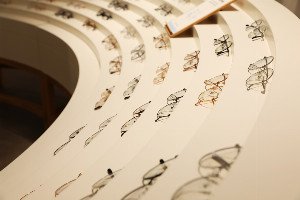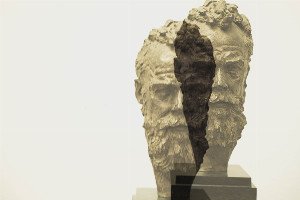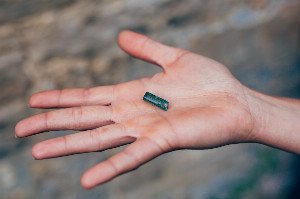Sulthan Jiyad Muqsith Asmara, Sarah Rouli Tambunan, An Nisa Dian Rahma, Putri Sosanti Sembiring, Dyah Seruni Rizqiana
Mengenal Media Sehat : Literasi Media Digital Untuk Anak Sekolah Dasar Di Era Informasi
Introduction
Mengenal media sehat : literasi media digital untuk anak sekolah dasar di era informasi. Meningkatkan literasi media digital sehat & Islami pada siswa SD. Modul edukatif, pelatihan guru & orang tua, hasil positif 73,4% peningkatkan pemahaman siswa.
Abstract
Kegiatan ini bertujuan jangka panjang untuk membentuk budaya literasi media digital yang sehat dan Islami di lingkungan sekolah dasar. Target khusus yang telah dicapai meliputi peningkatan pemahaman siswa terhadap penggunaan media digital secara bijak, penyediaan modul edukatif untuk guru, serta peningkatan keterlibatan orang tua dalam pendampingan media di rumah. Data yang digunakan mencakup data primer dari observasi lapangan, pre-test dan post-test siswa, serta wawancara guru dan orang tua; dan data sekunder dari literatur literasi digital anak. Metode kegiatan ini dilakukan melalui pendekatan partisipatif edukatif berbasis workshop dan penyuluhan interaktif. Solusi yang ditawarkan meliputi pembuatan modul mengenal media sehat, penyuluhan literasi media untuk siswa dan guru, serta pelatihan orang tua. Strategi utama yaitu mengintegrasikan nilai moral dan agama dalam materi digital serta membangun kolaborasi antara sekolah dan rumah. Hasil kegiatan menunjukkan peningkatan skor pemahaman siswa meningkat sebesar 73,4% dari angka semula senilai 48,2 menjadi 83,6, peningkatan keterampilan guru dalam menyisipkan literasi media di kelas, dan peningkatan kesadaran orang tua terhadap pentingnya kontrol media digital. Kegiatan ini terbukti memberikan dampak positif dan membuka peluang untuk pengembangan lanjutan dalam bentuk modul berlisensi dan publikasi ilmiah.
Review
The submitted work, "Mengenal Media Sehat: Literasi Media Digital Untuk Anak Sekolah Dasar Di Era Informasi," addresses a critically important and timely subject: fostering healthy digital media literacy among elementary school children. In an increasingly digital world, the need for targeted interventions to equip young learners with the skills to navigate online environments responsibly is paramount. This study is particularly commendable for its ambition to cultivate a digital media literacy culture that is not only "sehat" (healthy) but also "Islami," thereby integrating cultural and moral values into the digital education framework. The long-term objective of building such a culture within primary schools, coupled with its multi-faceted approach involving students, teachers, and parents, highlights the comprehensive scope and relevance of this community engagement initiative. The methodology employed in this activity is robust and well-articulated, utilizing a mixed-methods approach to gather comprehensive data. The use of pre-test and post-test assessments, supplemented by direct observations and interviews with teachers and parents, provides a strong basis for evaluating the program's impact. The significant quantitative outcome, demonstrating a 73.4% improvement in students' understanding scores from 48.2 to 83.6, is a clear indicator of the program's effectiveness in enhancing digital media comprehension. Furthermore, the qualitative findings, such as the reported increase in teachers' skills in integrating media literacy into their classes and parents' heightened awareness of digital media control, underscore the successful multi-stakeholder engagement. The practical solutions, including the development of "modul mengenal media sehat" and interactive workshops, are well-aligned with the participatory educational approach. Overall, this initiative demonstrates a clear positive impact on its target audience, effectively addressing a vital gap in current educational practices. The integration of moral and religious values ("nilai moral dan agama") within digital literacy content, alongside the emphasis on school-home collaboration, represents a thoughtful and holistic strategy. While the abstract strongly highlights the positive outcomes and the direct impact, future iterations or related publications could perhaps delve deeper into the specific content of the "Islami" integration and its reception, or discuss potential challenges encountered during implementation. The identified opportunities for further development, such as the creation of licensed modules and subsequent scientific publications, are encouraging and suggest a sustained commitment to disseminating this valuable work. This paper contributes meaningfully to the discourse on digital literacy education and provides a strong foundation for scaling such initiatives.
Full Text
You need to be logged in to view the full text and Download file of this article - Mengenal Media Sehat : Literasi Media Digital Untuk Anak Sekolah Dasar Di Era Informasi from Jurnal Pengabdian Kepada Masyarakat dan Desa .
Login to View Full Text And DownloadComments
You need to be logged in to post a comment.
Top Blogs by Rating
Is Electro Music the New Class...
By Sciaria
Phantom Power: Unmasking Your...
By Sciaria
Your DNA's Ancient Story: Unlo...
By Sciaria
Favorite Blog
The Unspoken Wisdom: Embracing...
By Sciaria
Beyond Repair Shops: Unlocking...
By Sciaria
The Ageless Enigma: What Biolo...
By Sciaria





